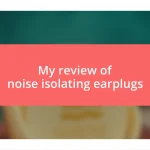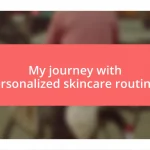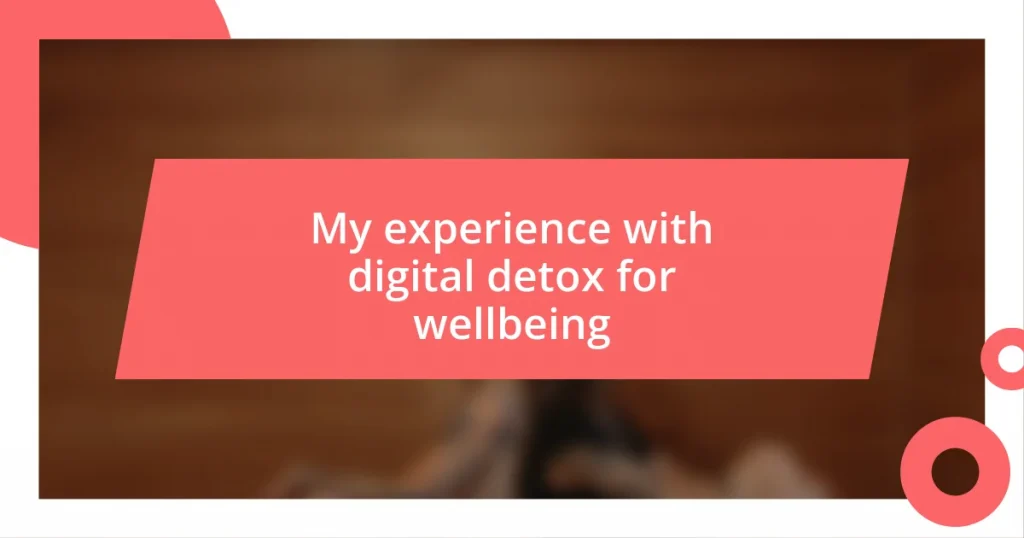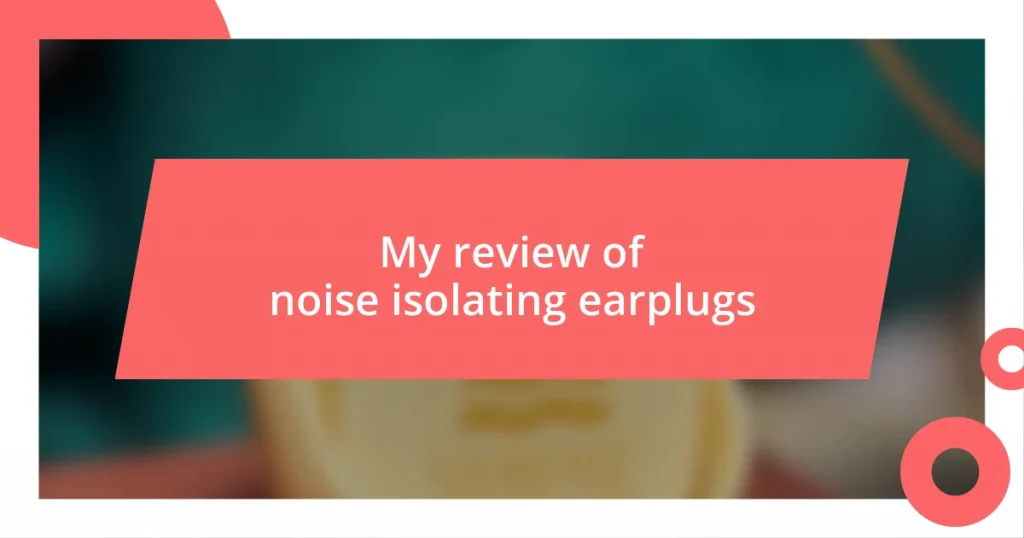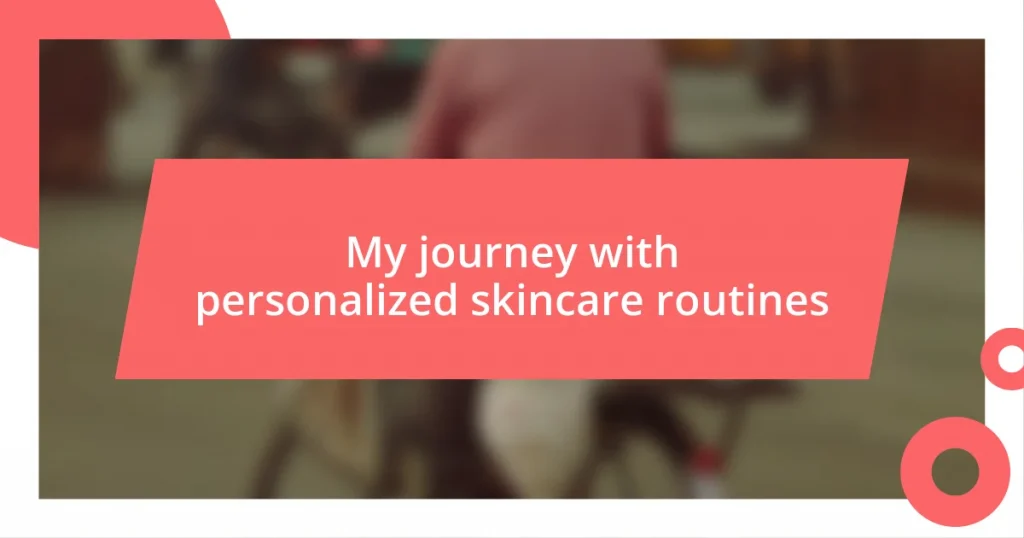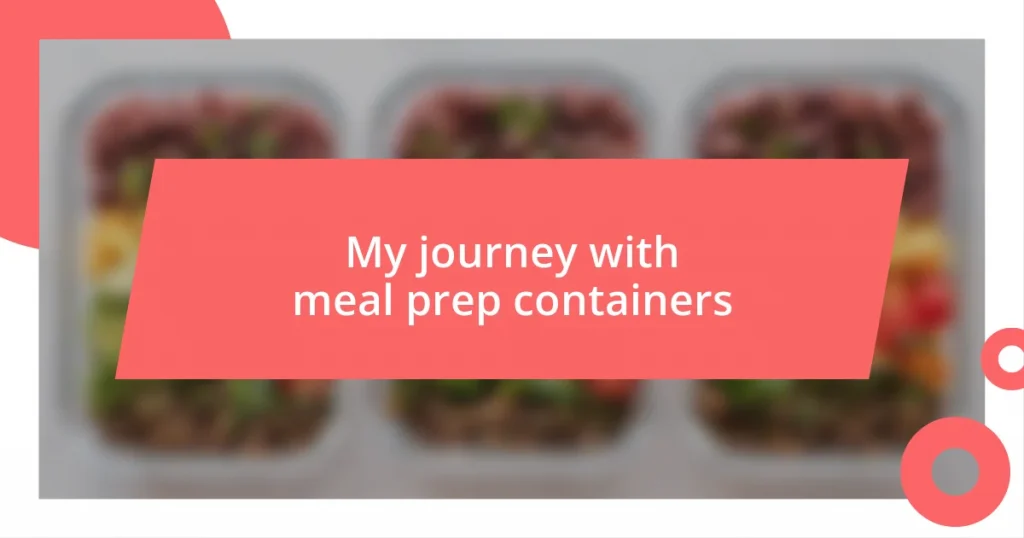Key takeaways:
- A digital detox leads to improved mental clarity and deeper personal connections, as stepping away from screens allows for more meaningful interactions.
- Recognizing signs of digital overload, such as irritability and difficulty concentrating, can motivate individuals to initiate a detox and regain control over their tech usage.
- Engaging in offline activities and tracking progress enhances the detox experience, fostering personal growth and a deeper understanding of one’s relationship with technology.
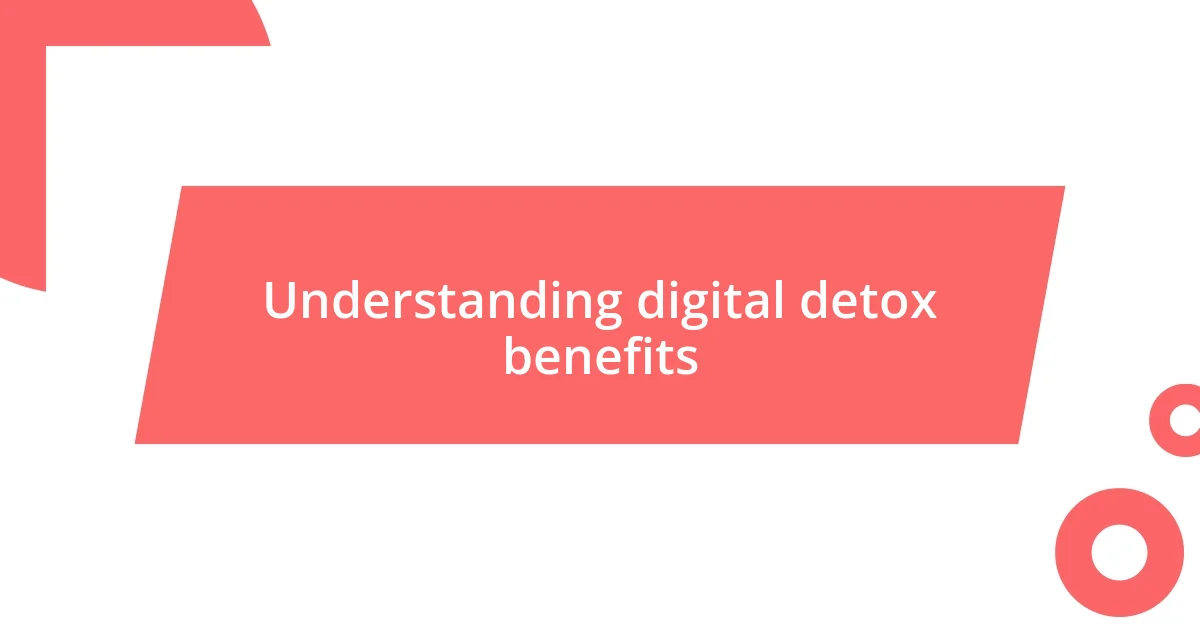
Understanding digital detox benefits
One of the most profound benefits I’ve experienced from a digital detox is a clearer mind. When I stepped away from my screens for a few days, I noticed how overwhelmed I had been by constant notifications. It’s surprising how much our thoughts can become cluttered and chaotic; don’t you often feel that tension in your head after a day spent scrolling?
During my detox, I found that my relationships improved significantly. Without the distraction of social media, I was able to connect more deeply with those around me. I remember one sunny afternoon, just sitting with friends, laughing and sharing stories without the urge to check my phone every few minutes. Isn’t it amazing how present we can be when technology doesn’t pull at our attention?
Emotionally, I felt a significant shift too. I encountered feelings of disconnection and, surprisingly, freedom. I had always thought that being online kept me connected, but stepping back revealed how often I was simply absorbing information rather than engaging meaningfully. Have you ever taken a moment to reflect on how often you look at your device instead of the world around you? That realization brought a wave of relief and clarity I hadn’t anticipated, making the detox truly transformative.
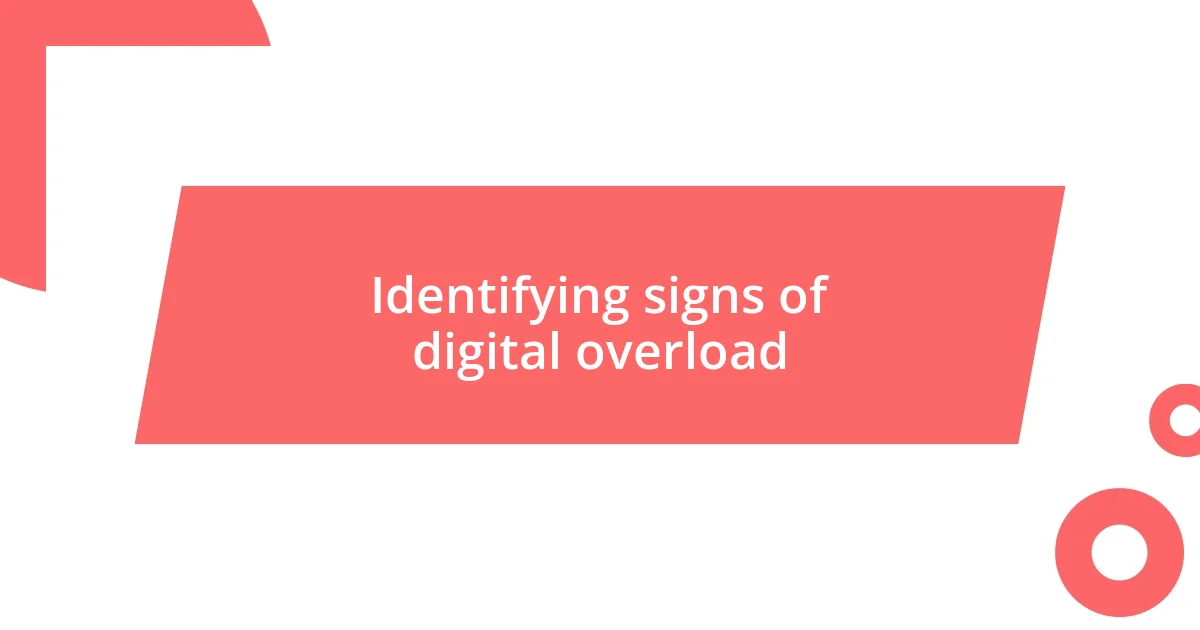
Identifying signs of digital overload
Recognizing the signs of digital overload can be a pivotal moment in making a change. I’ve noticed how my energy shifts after prolonged screen time; the fatigue isn’t just physical. I recall a time when I felt irritable and overwhelmed after spending hours online, even though I thought I was just scrolling through harmless content. It was then that I understood how subtly digital engagement can drain our mental resources.
Here are some signs that indicate you might be experiencing digital overload:
- Frequent headaches or eye strain after long periods of screen use.
- A constant feeling of anxiety or restlessness when separated from your devices.
- Difficulty concentrating on tasks that don’t involve screens, leading to procrastination.
- Irritability or mood swings connected to notifications or online interactions.
- A sense of disconnection from real-world relationships, feeling alone even when surrounded by friends.
These indicators can manifest in ways that are hard to ignore, nudging us towards the need for a digital detox. It’s a strange yet enlightening experience to suddenly realize how tied I had become to my devices, almost like they controlled my emotions rather than the other way around.
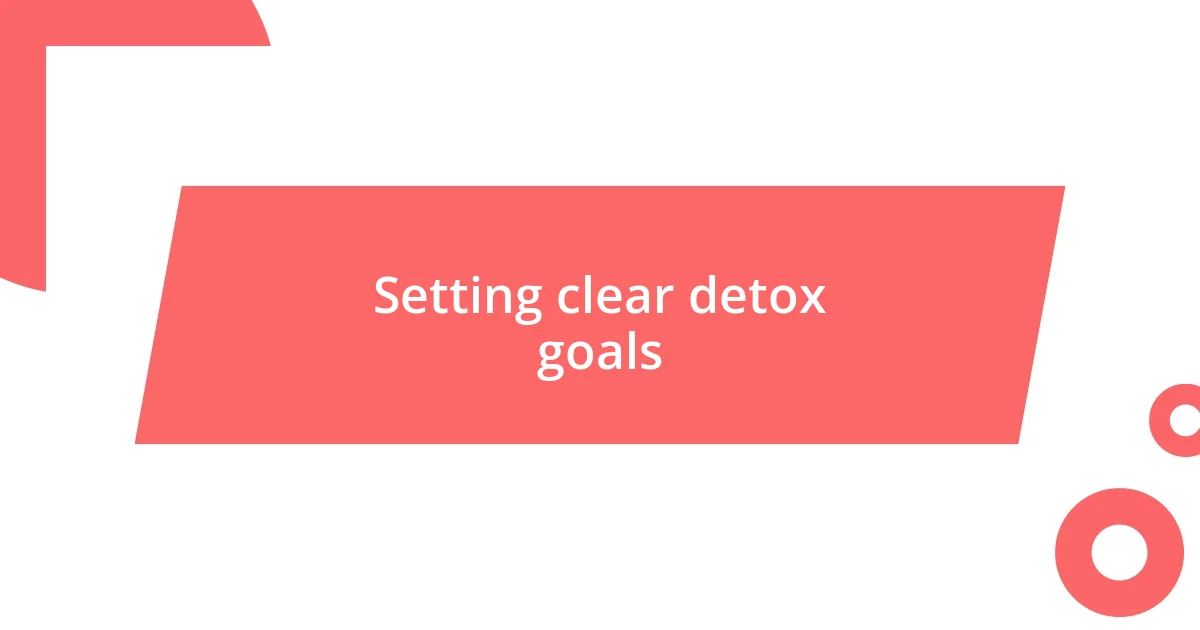
Setting clear detox goals
Setting clear detox goals can anchor your digital detox experience. I remember when I first embarked on my own journey; I found it helpful to articulate what I truly wanted to achieve. For me, it was about reducing daily screen time from eight hours to under two. Having a concrete number was motivating and provided a clear direction. Do you have specific outcomes in mind? Defining them can make the process feel more tangible.
As I progressed, I realized that my goals needed to include emotional aspects too. It wasn’t just about cutting back on tech-use; I aimed to reconnect with hobbies I’d sidelined. One day, I picked up my dusty guitar that I hadn’t played in months, and just plucking some strings brought back a flood of joy. It’s fascinating how setting goals beyond just reducing screen time can enrich your life. Have you thought about integrating not only time limits but also activities that inspire you?
Lastly, I found that revisiting my goals regularly kept me accountable. Having a written list visible was a simple yet effective reminder of what I wanted from my detox. Noticing my progress week by week offered a sense of accomplishment. Don’t underestimate the power of tracking your journey; how often do you reflect on your growth? Documenting even small victories can be incredibly motivating as you navigate your own detox journey.
| Goal Type | Examples |
|---|---|
| Time-Based | Reduce screen time from 6 hours to 2 hours daily |
| Activity-Based | Reconnect with hobbies, like reading or painting |
| Emotional Wellbeing | Feel less anxiety and more present in relationships |
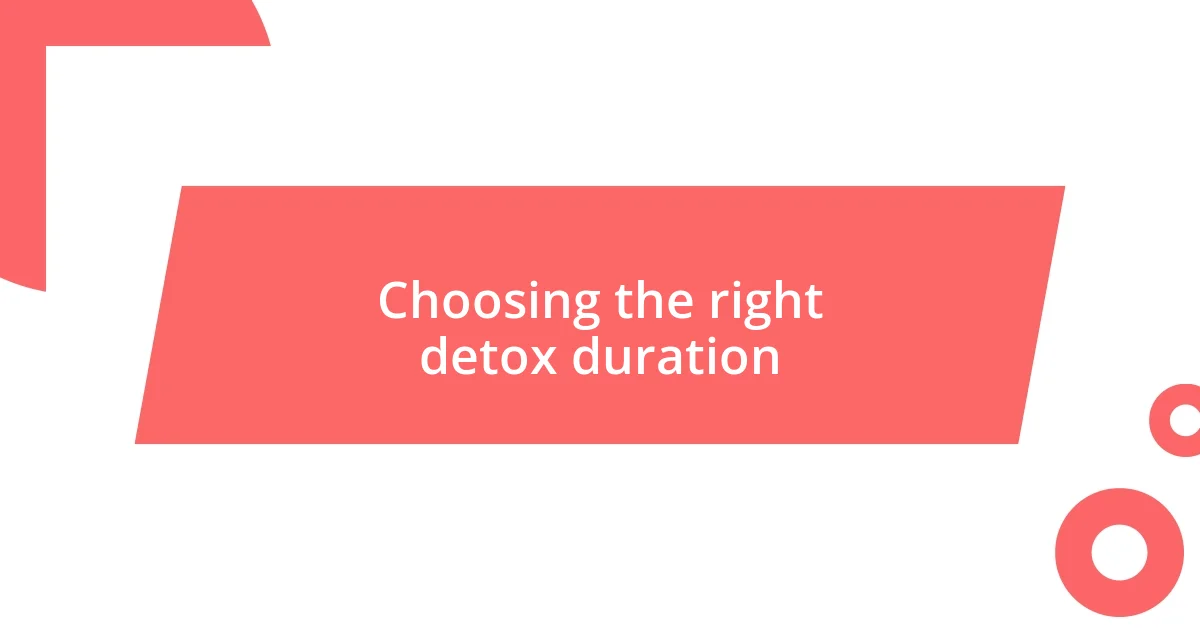
Choosing the right detox duration
Choosing the right duration for a digital detox can be a nuanced decision. Personally, I experimented with various durations, from a weekend to a full week. I found that a short detox can spark immediate awareness, while a longer break allows for deeper reflection—almost like peeling away layers to discover how I truly feel without the constant buzz of notifications.
I recall the first time I committed to a week-long detox. The initial days felt challenging, but as the weeks progressed, I experienced clarity I hadn’t felt in ages. It made me ponder: how much time do we really need to recalibrate? For some, a day or two might suffice, especially if they’re merely testing the waters. Others may require a more extended period to break old habits and form new ones—what about you? What resonates with your lifestyle?
Ultimately, I believe it’s about tuning into your personal needs. Consider your daily routines, obligations, and how technology fits into them. Do you find you need to disconnect during busy periods, or perhaps you’d like a break when you’re feeling overwhelmed? By thoughtfully determining the right detox duration, you set the stage for a transformative experience that can lead to lasting change.
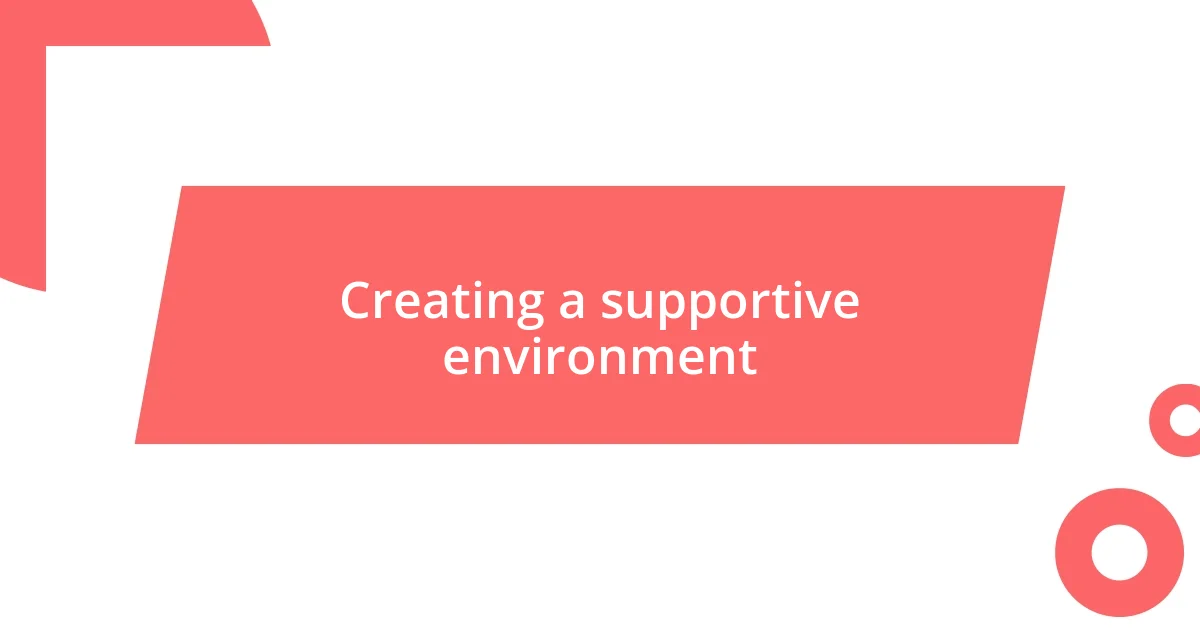
Creating a supportive environment
Creating a supportive environment can significantly enhance your digital detox experience. I remember setting up a cozy corner in my home as a tech-free zone. I decorated it with my favorite books and calming plants, which naturally drew me away from screens and encouraged me to unwind. Have you ever thought about how your physical space influences your mindset? A welcoming, distraction-free area can be the perfect haven for reflection and reconnection.
Surrounding myself with supportive people was another game-changer. I shared my goals with friends and family, and to my delight, they were eager to join me in this journey. We often scheduled tech-free hangouts instead of scrolling through social media together. The laughter and genuine connections we shared were far more fulfilling than any online interaction I could have had. How might engaging with others in real life shape your experience?
I also found that minimizing digital distractions in my environment truly mattered. I started by silencing notifications, which felt liberating. There was one evening where I intentionally left my phone in another room while I cooked. I felt more present, enjoying the textures and colors of the ingredients. It’s fascinating how small adjustments, like keeping devices out of sight, can profoundly impact your focus and wellbeing. What minor changes could you implement to create a more nurturing space for your detox?
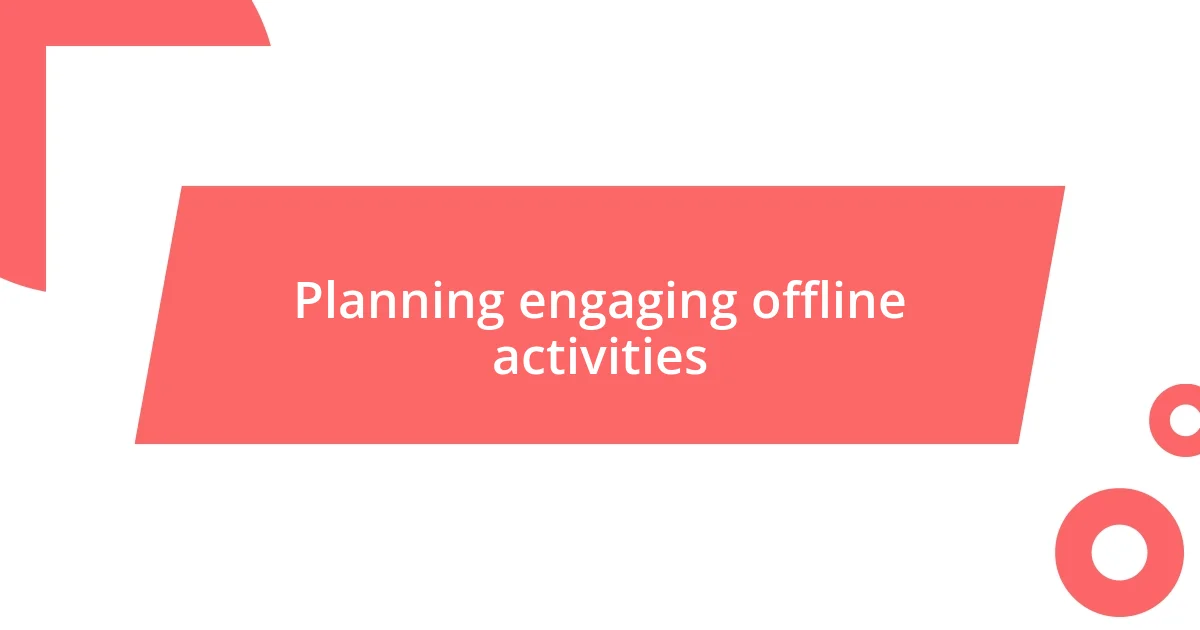
Planning engaging offline activities
Planning offline activities is crucial for enhancing your digital detox experience. To kickstart my journey, I made a list of activities that genuinely excited me. For instance, I rediscovered my love for painting, which had been overshadowed by screen time. Reflecting on that moment, I realized how liberating it felt to get lost in colors and brush strokes, far removed from my notifications. What activities ignite your passions?
One of my favorite strategies was scheduling nature hikes with friends. I remember one particular Saturday; we ventured out to a local trail, leaving our phones in the car. The air was crisp, and with each step, I felt a growing sense of connection to my surroundings. I noticed details I would have otherwise ignored—the rustling leaves, the vibrant sky, and friends’ laughter. Have you experienced the magic of nature when unplugged? It’s something that nourishes both the body and spirit.
Additionally, I began hosting themed potluck dinners. It offered a chance to collaborate with others while sharing delightful meals and stories. One evening, I curated a “favorite childhood dish” night, leading to a heartfelt exchange of memories. I could feel the warmth of connection—a feeling far richer than any digital interaction. What themes resonate with you and your circle? It’s fascinating how offline interactions can rebuild those essential bonds that we often overlook.
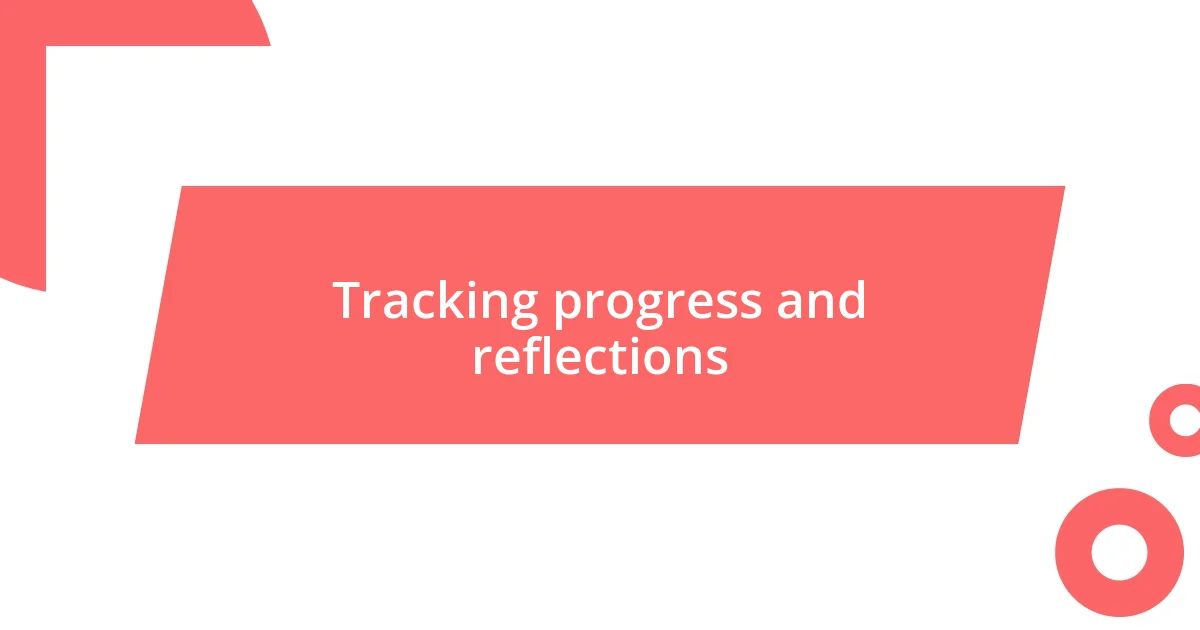
Tracking progress and reflections
Tracking progress during my digital detox was an eye-opening experience. I started a simple journal where I noted my feelings each day, reflecting on moments of clarity and the challenges I faced. One evening, I wrote about how I felt a sense of achievement when I managed a full day without checking my emails. This practice revealed patterns in my emotional responses that I hadn’t recognized before. Have you ever kept a journal? It’s remarkable how writing can bring your thoughts into sharper focus.
As I delved deeper into my reflections, I discovered the importance of celebrating small victories. For instance, I felt genuinely proud when a week went by without the urge to scroll through social media. It reminded me that progress doesn’t always have to be monumental; even the tiniest steps count. How do you acknowledge milestones in your journey? Recognizing these moments fueled my motivation to keep going, reinforcing that the journey itself can be as rewarding as the outcome.
Engaging in self-reflection also prompted discussions with others about their experiences. I remember a heartwarming conversation with a friend who shared her struggles during her own detox journey. We exchanged tips and insights, realizing how each of us had unique hurdles but similar rewards. This exchange of experiences enriched my perspective and made me realize that I wasn’t alone in this quest for wellbeing. Have you ever shared your journey with someone else? It can be incredibly empowering to connect, analyze, and grow together.
